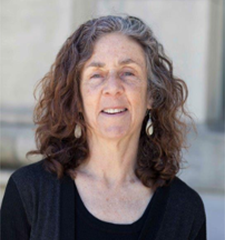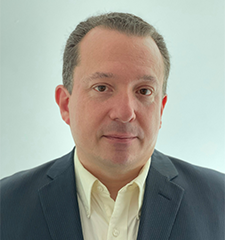For more information:
Email UsLearning Outcomes
- Understand how to approach discussion on co-authorship
- Identify best practices for a successful discussion
- Recognize risks and benefits of co-authorship
- Consider the role of power dynamics
Authorship can be a daunting and complicated discussion, but there are ways to simplify this process. In this session, Melissa Brodrick, MEd, and Dan Wainstock, PhD, will share practical advice about how to generate and participate in productive conversations around co-authorship.
Boundary-Crossing Skills for Research Careers
This session explores approaches to developing a broad range of competencies integral to establishing and maintaining a successful research career. This series delves into the following competencies: team science, mentorship, project management, communication, leadership, and funding research. For more information and to access other resources and webinars in the series, please visit Boundary-Crossing Skills for Research Careers.
Meet the Presenters
 Melissa Brodrick, MEd, is director and ombuds for the Harvard Ombuds Office. She serves as an impartial dispute resolution practitioner who provides confidential and informal assistance to Harvard faculty, staff, students, and trainees primarily at Harvard Medical School, Harvard School of Dental Medicine, Harvard T.H. Chan School of Public Health, and to appointees at Harvard’s affiliated hospitals. In her role, Brodrick helps those in the Harvard community manage or resolve their disputes at the individual and/or institutional level by assisting them in clarifying concerns, identifying goals, and considering options. Her authorship trainings are informed by the dozens of self-reported authorship concerns brought to the Ombuds Office each year. Brodrick came to Harvard’s Longwood Campus in 2010 with 25 years of prior experience in conflict resolution as a mediator, trainer, and facilitator.
Melissa Brodrick, MEd, is director and ombuds for the Harvard Ombuds Office. She serves as an impartial dispute resolution practitioner who provides confidential and informal assistance to Harvard faculty, staff, students, and trainees primarily at Harvard Medical School, Harvard School of Dental Medicine, Harvard T.H. Chan School of Public Health, and to appointees at Harvard’s affiliated hospitals. In her role, Brodrick helps those in the Harvard community manage or resolve their disputes at the individual and/or institutional level by assisting them in clarifying concerns, identifying goals, and considering options. Her authorship trainings are informed by the dozens of self-reported authorship concerns brought to the Ombuds Office each year. Brodrick came to Harvard’s Longwood Campus in 2010 with 25 years of prior experience in conflict resolution as a mediator, trainer, and facilitator.
 Dan Wainstock, PhD, is director for Research Integrity at Harvard Medical School (HMS). He coordinates assessments of possible research misconduct for HMS and its affiliates, and collaborates with practicing scientists and institutional stakeholders to support the development and implementation of resources for research integrity and reproducibility at HMS. His scientific training in developmental genetics and 15 years of editorial and publishing experience in the fields of cellular and developmental biology inform his perspective on many aspects of research rigor and transparency.
Dan Wainstock, PhD, is director for Research Integrity at Harvard Medical School (HMS). He coordinates assessments of possible research misconduct for HMS and its affiliates, and collaborates with practicing scientists and institutional stakeholders to support the development and implementation of resources for research integrity and reproducibility at HMS. His scientific training in developmental genetics and 15 years of editorial and publishing experience in the fields of cellular and developmental biology inform his perspective on many aspects of research rigor and transparency.
Session date
March 1, 2023
11:00am – 12:00pm
Audience
Webinars in this series are designed for translational researchers and research staff at any career stage. There are no eligibility requirements to participate, and attendees are welcome to participate in as many sessions as are of interest.
We believe that the research community is strengthened by understanding how a number of factors including gender identity, sexual orientation, race and ethnicity, socioeconomic status, culture, religion, national origin, language, disability, and age shape the environment in which we live and work, affect each of our personal identities, and impacts all areas of human health.
Register
The registration process is closed. Please check back for future opportunities.

